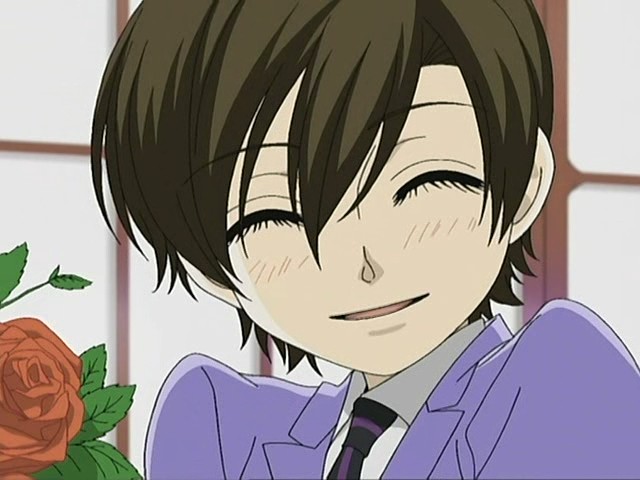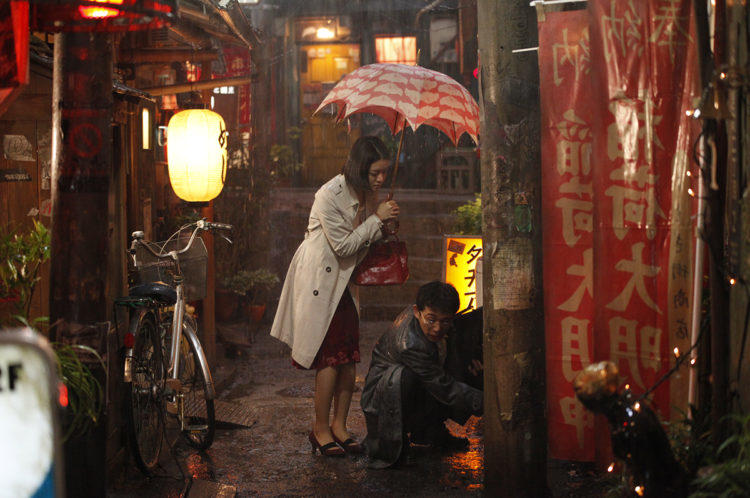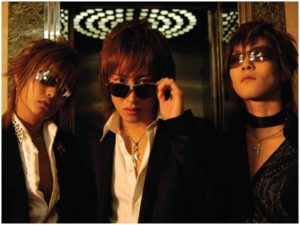
Hosts are guys aged between 18 – mid 20. They are expected to be “hot” with silver jewelry, tans, and charm. Basically they are male geisha. Their main job is to help the customer feel better about themselves. In the documentary “The Great Happiness Space,” the hosts often referred to their job as “healing” their customers through listening, offering advice, serving as a source for support, or a conscious.
Oh, I didn’t mention. Hosts earn minimum wage plus earnings. It isn’t unusual, according to the documentary, for a host to earn $10,000 – $50,000 a month. Yes, that is in US dollars when the documentary was filmed. There are drawbacks. Guys work to exhaustion and drink A LOT. Issei, the main host featured in the documentary, says it isn’t unusual to drink 10 champagne bottles a night. How does he keep from getting drunk? A quick trip to the restroom to induce vomiting. Hosts also have problems establishing real relationships. They come to view women as customers instead of friends.
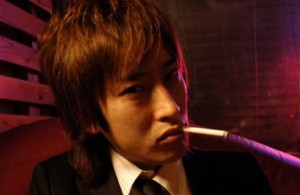 The hosts feel they genuinely help and change their customers. The customers also agree. They feel better having someone pay attention and listen to them…even if they have to pay to be listened to. Many customers try to get their favorite host (often a relationship is built over several years) to marry them. Sometimes, hosts will sleep with their customer for the right price. However, most hosts prefer not to. They withhold sex as much as they can because once a customer “has” them the customer can lose interest. Lost interest is lost patronage for the host.
The hosts feel they genuinely help and change their customers. The customers also agree. They feel better having someone pay attention and listen to them…even if they have to pay to be listened to. Many customers try to get their favorite host (often a relationship is built over several years) to marry them. Sometimes, hosts will sleep with their customer for the right price. However, most hosts prefer not to. They withhold sex as much as they can because once a customer “has” them the customer can lose interest. Lost interest is lost patronage for the host.
The Great Happiness Space is an interesting look at Host Clubs. I don’t know if what it portrays is common or not. The camera shows both the glamorous dream and the reality behind the dream. I didn’t feel like Host Clubs were evil or immoral as I watched. They simply were as they were. Customers are women who lack deep male relationship; they work at hostess clubs ( host clubs for guys) or prostitution. Even this is handled with neutrality. The hosts speak candidly; there are aspects they dislike – such as speaking to women who are not their type and insist on marriage – to aspects they deeply enjoy. Healing is a common word used by hosts.
One of the younger hosts breaks down during one of the interviews:
“They [the customers] have a lot of money, but so few are content with their lives… They want to fall in love, they want to feel needed, and they all come to this space. People are not so strong, especially alone. Even though [we charge a lot of money,] they still say ‘thank you’ when they walk out the door.”
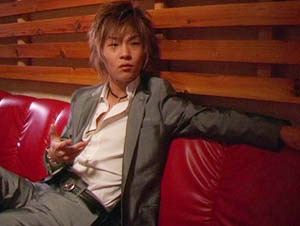
“We have to keep them happy, so when we have to lie, we lie. If I were honest, many girls would hate me.”
Host clubs are physically wrecking. Most hosts only last a month. With all the hard drinking and smoking, hosts age quickly and often look older than their mid 20’s. It is a story of woman who are down trodden in a mostly male society achieving power for a price, of hosts who’s jobs affects their health and relationships, and the genuine positive impact hosts have.
It is an interesting look at a strange, often sad, world.
